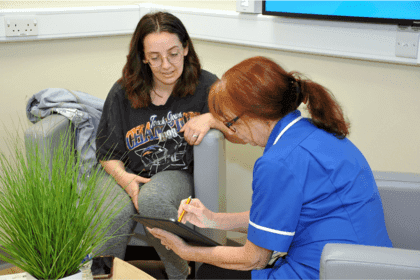
Longitudinal population studies
Learn about Wellcome’s approach to supporting longitudinal population studies and why they’re such an important resource.
Why longitudinal population studies are important
Longitudinal population studies track the health of a large group of people over time. They’re a powerful way of exploring the many influences that shape people’s lives and health. These influences range from genes and lifestyle to local environment and health services that can be accessed.
They are extremely valuable resources for researchers. The findings can be used to understand the drivers of health outcomes and lead to breakthroughs that improve health for all.
Wellcome has supported a range of field-leading longitudinal population studies. These include:
-
world-leading biobanks, such as UK Biobank
-
place-based birth cohorts, such as ALSPAC, Born in Bradford and C-Gull
-
studies on demographic surveillance programmes, such as Vukuzazi
-
health surveys, such as The National Survey of Sexual Attitudes and Lifestyle (NATSAL)
-
large health-record linkage resources, such as Centro de Integração de Dados e Conhecimentos para Saúde (CIDACS)
-
cohorts in low-resource settings, such as Healthy Lives Malawi
We also support efforts to make cohort studies more findable, connected and support underserved geographies. This includes International HundredK+ Cohorts Consortia (IHCC) and the Collaboration for the Establishment of an African Population Cohorts Consortium (CE-APCC).
How we support longitudinal population studies
Wellcome will continue to support high-quality resources that drive methodological innovation and influence policymakers. Our focus is on how best to support this ever-evolving field through strategic funding calls and scoping activities.
Our approach to funding longitudinal population studies is designed to:
- ensure our portfolio better reflects the diversity of the global population
- enable the development of new technologies and approaches
- support linking individual data and studies
- sustainably provide long-term, stable funding
- fund studies that support our mission and align with our strategic programmes: Discovery Research, Mental Health, Climate and Health and Infectious Disease
In addition to our strategic investments, applications can be submitted to the Discovery Research funding schemes. These applications will be considered when in remit, use data to answer specific research questions or develop new tools and technologies.
